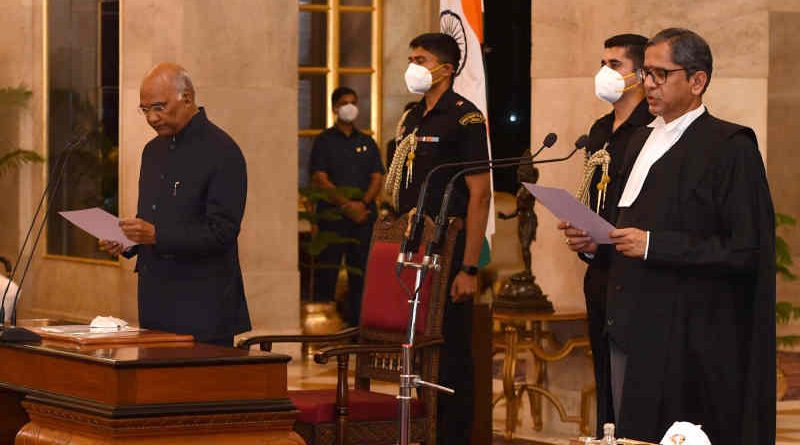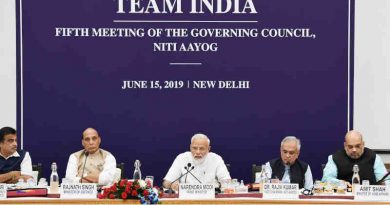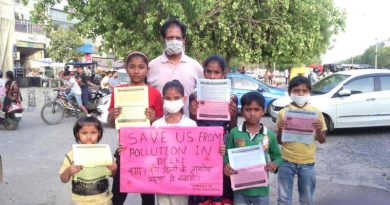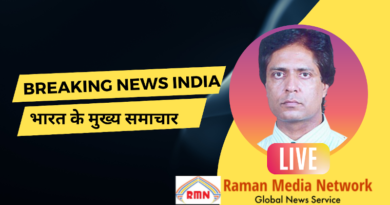Spineless Supreme Court Fails to Tackle Pollution Problem in Delhi
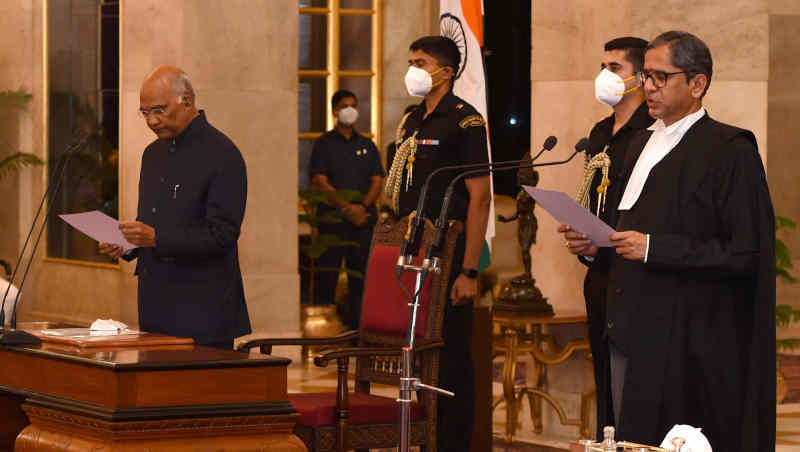
Spineless Supreme Court Fails to Tackle Pollution Problem in Delhi
The United Nations Human Rights Council (UN HRC) has recognized for the first time that having a clean, healthy, and sustainable environment is a human right.
By Rakesh Raman
The Supreme Court of India, which has repeatedly failed to discharge its responsibilities truthfully, has once again surrendered to the persisting air pollution problem in India’s capital New Delhi and surrounding areas.
After holding meaningless gossip sessions in the court, the judges could not resolve even an iota of the problem and left it to the delinquent bureaucrats and careless politicians to control the deadly pollution on their own.
A Supreme Court bench headed by Chief Justice of India (CJI) N.V. Ramana could randomly curse only TV debates for increasing pollution in Delhi, but he could not offer any solution to tackle the problem.
The bench – which also comprised Justices D.Y. Chandrachud and Surya Kant – kept blaming government agencies in the court hearing today (November 17) for their failure to combat pollution. But this unskilled group of judges never thought to use the environmental or criminal laws to prosecute, punish, and imprison the government functionaries who should be charged with genocidal crimes and crimes against humanity.
While New Delhi continues to be the most polluted national capital in the world, a staggering number of deaths are taking place due to pollution in the city.
A global environment research organization Greenpeace Southeast Asia reveals that pollution killed 54,000 people in just one year (2020) in Delhi while the city is at the top of a list of world’s five most polluted cities. In other words, pollution is killing nearly 150 people everyday in Delhi while hundreds of Delhi residents are falling sick.
The Greenpeace research reveals that these are avoidable deaths – one death per 500 people in Delhi’s population of 30 million – which are taking place due to PM2.5 air pollution and the estimated economic cost to Delhi in 2020 was US$ 8.1 billion.
Since the Indian Government, Delhi Government, and pollution-control agencies such as Central Pollution Control Board (CPCB), Delhi Pollution Control Committee (DPCC), the Commission for Air Quality Management (CAQM), and National Green Tribunal (NGT) are full of corrupt and ignorant officials, they are not taking proper steps to save people’s lives from increasing pollution in Delhi.
The extreme pollution in Delhi is usually compared to the poisonous gas chambers used by Nazi Germany during the Holocaust for the genocide of millions of European Jews. The Air Quality Index (AQI) in Delhi remains at hazardous or unhealthy levels throughout the year, every year. But the government and pollution-control agencies take some temporary measures such as closing the schools or banning construction activities just for a few days – mostly during the month of November.
While the government is highly corrupt and court judges lack domain expertise in the field of environment, they play some hijinks every year in the courtrooms. However, they could never find a permanent solution to the problem which is rapidly killing people like an untamed monster.
COMPLICIT AND SPINELESS SUPREME COURT
It is also being increasingly observed that the Supreme Court of India judges are scared of crooked politicians who virtually control them. When the case is against the government politicians or top officials connected with the politicians, the judges do not take any decision that may displease their government bosses.
In some cases, they issue perfunctory notices to the government or casually censure the government lawyers to hoodwink the citizens. But they never use the law to punish the criminal politicians or their accomplices. The cases – such as Delhi pollution – in which the politicians or top bureaucrats are accused never get decided because judges lack courage to handle such cases objectively.
However, when the authoritarian rulers harass or imprison their critics illegally, the judges never try to rescue them. Rather, they waste plenty of time in useless hearings or deferments so that the government opponents must languish in jails without proper trial.
But when the criminality of politicians comes in front of them, instead of putting them behind bars, the judges always tend to agree with the government lawyers and complicit officials so that the criminal politicians could be protected. The same is happening in the case of Delhi pollution which is a result of the reckless handling of the situation by the government politicians and unskilled bureaucrats.
In the past, multiple cases have been either ignored by the Supreme Court arbitrarily or the judgments have gone in favor of the government headed by prime minister (PM) Narendra Modi. These cases include Ayodhya temple case, Rafale corruption case, electronic voting machines (EVM) fraud case, PM-CARES Fund case, Article 370 case on Kashmir, Judge Loya death case, Gujarat riots case, Citizenship Amendment Act (CAA) case, electoral bonds case, judicial corruption case, sextortion case of former Chief Justice Ranjan Gogoi, environmental crime case, and a number of other cases which still await justice.
Since any truthful judgment in the Delhi pollution case will disturb the Modi government which is responsible for the widespread calamity in the city, the complicit and spineless Supreme Court will keep wasting time in the court. But it will never handle the case lawfully to catch the culprits and save people’s lives and environmental rights in the city.
Meanwhile, the United Nations Human Rights Council (UN HRC) has recognized for the first time that having a clean, healthy, and sustainable environment is a human right.
While more than 80 percent of UN Member States already recognize the right to a healthy environment through national law, court decisions, or regional treaties, the new Resolution still marks a watershed moment in the fight against the triple planetary crisis of climate change, nature and biodiversity loss, and pollution and waste.
By Rakesh Raman, who is a national award-winning journalist and social activist. He is the founder of a humanitarian organization RMN Foundation which is working in diverse areas to help the disadvantaged and distressed people in the society. He also runs Green Group of Delhi.


